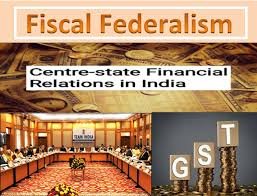State Governments’ Power to Levy Excise Duty on Industrial Alcohol
In recent news, the issue of state governments’ power to levy excise duty on industrial alcohol has sparked debates and discussions across the nation. This matter holds significant importance, especially for students preparing for government exams, as it pertains to the broader understanding of fiscal federalism and the distribution of powers between the central and state governments.
Background of the Issue
Historically, the power to levy excise duty on industrial alcohol has been a contentious issue between the central and state governments. Industrial alcohol, which is primarily used for manufacturing purposes, has been a subject of taxation, and the jurisdiction over its taxation has often led to conflicts between the two tiers of government.
Recent Developments
Recently, the Supreme Court of India issued a ruling on the matter, clarifying the extent of state governments’ authority to impose excise duty on industrial alcohol. The court’s decision has brought clarity to the legal landscape surrounding this issue, impacting the fiscal policies of various states.
Implications for Government Exams
For students preparing for government exams, understanding the nuances of fiscal federalism and the distribution of powers is crucial. This news provides valuable insights into the dynamics of governance and the legal framework governing taxation in India.
Conclusion
The issue of state governments’ power to levy excise duty on industrial alcohol underscores the complex interplay between federal and state authorities in India’s governance structure. As students gear up for government exams, staying abreast of such current affairs is essential for a comprehensive understanding of the subject matter.

Why this News is Important
Clarification of State Governments’ Authority
The recent ruling by the Supreme Court clarifies the extent of state governments’ authority in levying excise duty on industrial alcohol, which has been a subject of contention for years.
Implications for Fiscal Policies
This development has significant implications for the fiscal policies of various states, potentially impacting their revenue generation and economic planning.
Historical Context
The issue of state governments’ power to levy excise duty on industrial alcohol has historical roots in the broader debate over fiscal federalism in India. Since the inception of the Indian Constitution, the division of powers between the central and state governments has been a subject of debate and interpretation.
Key Takeaways from “State Governments’ Power to Levy Excise Duty on Industrial Alcohol”
| Serial Number | Key Takeaway |
|---|---|
| 1 | Recent Supreme Court ruling brings clarity to the extent of state governments’ taxing authority. |
| 2 | Implications for fiscal policies of states in terms of revenue generation and economic planning. |
| 3 | Understanding the dynamics of fiscal federalism is crucial for government exam preparation. |
| 4 | This issue highlights the complexities of governance and legal framework surrounding taxation. |
| 5 | Stay updated on current affairs for a comprehensive understanding of government exam topics. |
Important FAQs for Students from this News
Q1: What is industrial alcohol, and why is it subject to excise duty?
A1: Industrial alcohol refers to ethyl alcohol used for non-consumptive purposes such as manufacturing. It is subject to excise duty as a form of taxation imposed by the government.
Q2: What was the recent ruling by the Supreme Court regarding state governments’ power to levy excise duty on industrial alcohol?
A2: The recent ruling clarified the extent of state governments’ authority in imposing excise duty on industrial alcohol, bringing clarity to a long-standing legal issue.
Q3: How does the issue of excise duty on industrial alcohol relate to fiscal federalism in India?
A3: The issue highlights the dynamics of fiscal federalism, involving the division of taxing powers between the central and state governments as per the Indian Constitution.
Q4: What are the implications of the Supreme Court’s decision on state governments’ fiscal policies?
A4: The ruling has significant implications for state governments’ fiscal policies, potentially affecting revenue generation and economic planning.
Q5: Why is it important for government exam aspirants to stay updated on current affairs related to fiscal matters?
A5: Understanding current affairs like the issue of excise duty on industrial alcohol is crucial for government exam preparation as it provides insights into governance dynamics and legal frameworks.
Some Important Current Affairs Links


















 Exciting News!
Exciting News!  Join Our Telegram Channel Now!
Join Our Telegram Channel Now!
 Join our Telegram channel for a thrilling adventure into the world of daily current affairs.
Join our Telegram channel for a thrilling adventure into the world of daily current affairs. 
 Don’t miss out on the latest updates and insights! Click to join now and be part of the knowledge revolution!
Don’t miss out on the latest updates and insights! Click to join now and be part of the knowledge revolution! 
